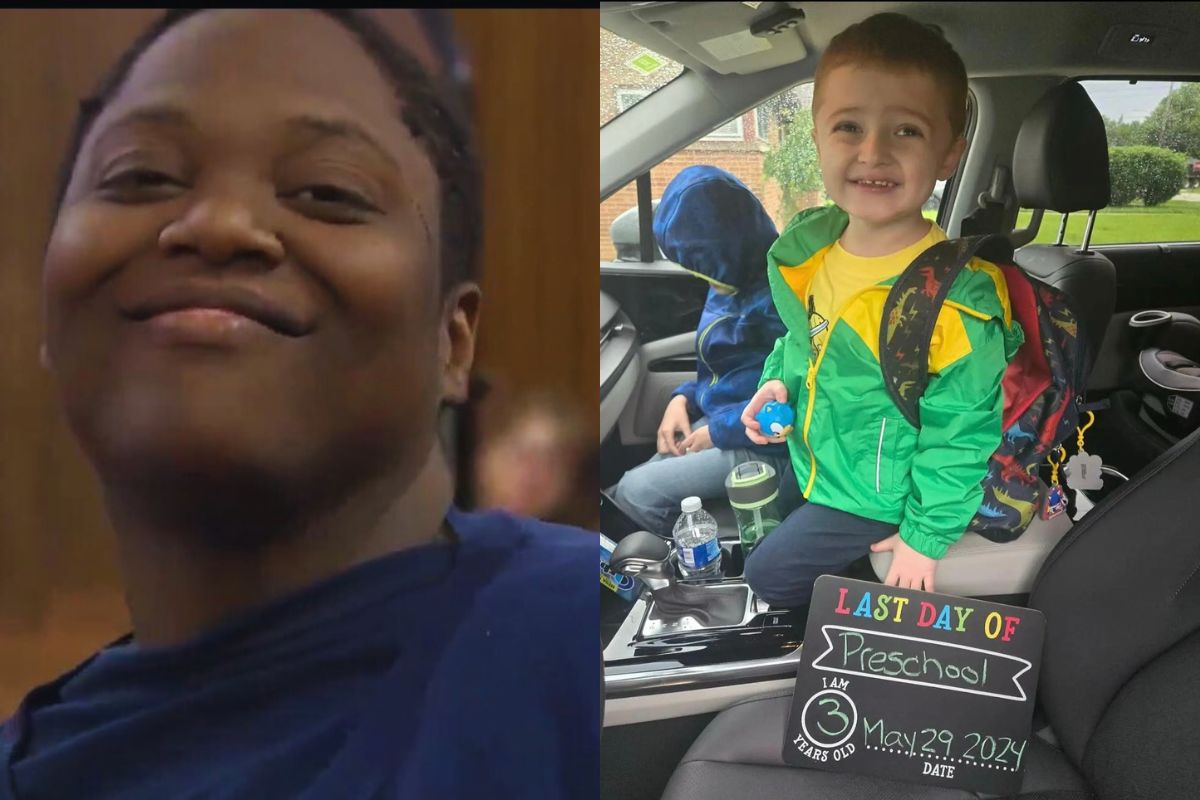


The events concerning Bionca Ellis in 2024 drew attention beyond the district of North Olmsted in Ohio and stirred great controversy in the entire nation. She pleaded guilty to murdering a three-year-old boy, Julian Wood.
Even as Ellis battles further mental and legal issues, the case highlights the new aspect of how to handle offensive behaviors in the contexts of a mental illness in those who are violent offenders.
The year is 2024, the summer season of America. On a certain day, when there ought to have been peace, there was anger in North Olmstead, Ohio. Bionca Ellis committed a violent crime that shocked the entire community; shockingly, she was a complete stranger to the victims.
In this case, she went up to three-year-old Julian Wood and his 37-year-old mother Crystal Wood and started stabbing them. Crystal survived.
Unfortunately, her son did not. People were horrified because the nature of the crime suggested a prior relationship between the perpetrator and the victim, which neither of them had, heightening the tragedy.
Ellis was charged instantly with aggravated murder, felonious assault and other related charges after the stabbing. She was placed under arrest, and a grand jury in Cuyahoga County subsequently issued an indictment against her, setting the tone for a most publicized legal tussle.
🚨BREAKING🚨
Judge declares Bionca Ellis incompetent to face trial,
sends her to a rehabilitation hospital instead of jail.
Ellis stabbed Julian Wood to death.
Then she smiled about it in court.
Name the Judge. pic.twitter.com/8Qr1eK6pXP
— The General (@1776General_) September 16, 2024
As the case against Bionca Ellis progressed, it became apparent that one specific issue would come to dominate the proceedings: her mental problems. After the attack, Ellis was placed in a mental health facility, where her behavior began to raise questions about her mental competence. Reports indicated that Ellis was non-compliant with medication prescriptions when in treatment, and so her attorneys sought a mental competency evaluation.
The judge found that Ellis was not mentally competent to be tried on the case in September 2024. Even though this was disappointing for many who were seeking justice for Julian Wood, it nevertheless emphasized the point that further assessments were necessary to establish the prospects of Ellis being restored to competence.
According to Ohio law, individuals cannot be tried for crimes unless they are deemed mentally competent, meaning they must be able to understand the legal proceedings and assist in their defense.
In a ruling that raised eyebrows, the judge put the criminal case on hold for the time being, placing Ellis once again into a mental health facility to be treated. The court later set a date for another hearing to look at her condition again, with the hope that she may be fit to be tried at a future date.
Ellis’s refusal to take medication became a pivotal point in the case. On September 24, 2024, Judge John J. Russo signed Ellis’s medication order. This decision had been made upon the advice of Ellis’s medical team, who were of the view that there was hope in her mental rehabilitation and her return to the courts.
Following this decision, controversy surrounded the relationship between self-determination, mental health, and justice. Under Ohio law, courts can mandate that defendants receive treatment to restore their competency.
The treatment almost always includes the usage of medications under relatively strict conditions where it is clear that the person may be a threat.
In fact, in Ellis’s case, the combination of her history of aggression, together with her failure to comply with medication, added to the case for treatment that did not need her consent.
While this was considered by many as a much-needed course of action in achieving justice for the victims, there were some who raised ethical issues regarding the active medication of a person, even in a case with very serious criminal charges.
The Bionca Ellis case attracted many strong emotions, some anger and others sorrow. The loss of a young child under such a horrendous attack shocked the public, and there was a demand to have this rectified and fast.
The court’s ruling over Ellis’s ‘competency’ brought in a different perspective because a lot of people found it hard to combine the real issues of mental health with the fact there is social order that needs to be maintained and people must suffer the consequences of the law.
Nonetheless, when severe mental illness is present in cases like Ellis’s, the standards may act as an obstacle, bringing about frustration in the legal system and the quest for justice of the victims and their relatives.
The heartbreaking grief of the consequences brought by her son’s murder was expressed by Crystal Wood, the mother of the deceased child, in the courtroom and later, in several interviews. The process of overcoming both physical and emotional anguish has been protracted and difficult for her, and the court’s judgment about Ellis’s illness added further difficulties.
Bionca Ellis is still under the supervision of mental health practitioners and the court regarding her rehabilitation as of October 2024. Even though there appears to be a court order mandating her to take medication.
It is unclear whether Ellis will ever fully recover and stand trial for the heinous offenses she is accused of having committed. The journey towards justice for Julian Wood and for the North Olmsted community is long and seems cruel.
